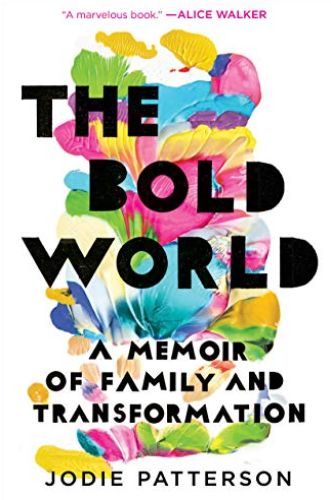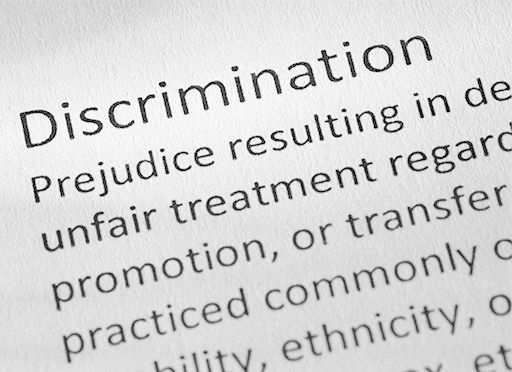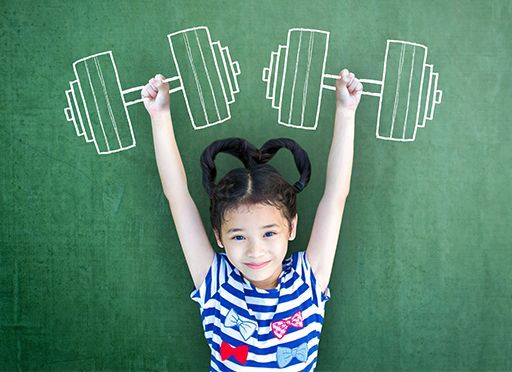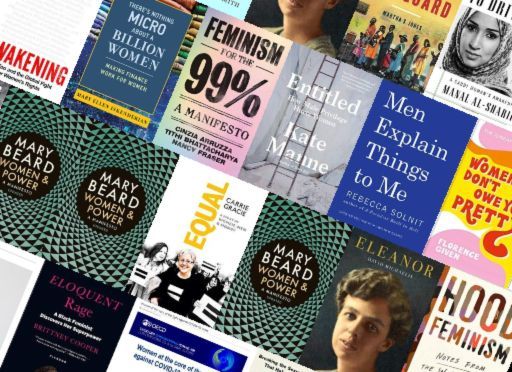Activist and writer Jodie Patterson offers a moving saga of her stifled upbringing, fight for equity in her marriages, and unflinching devotion to her transgender child.

Unconditional Love
With wisdom and compassion, Jodie Patterson tells the compelling story of her childhood, partnerships and, in particular, her child, Penelope, who, even as a toddler, self-identified as a boy. Patterson’s narration of Penelope’s story, and of her tireless advocacy on his behalf, provides a thoughtful personal history and insights into gender, race and culture.
Critics praised Patterson’s honest and loving portrayal of the challenges women face, and the great lengths a mother will travel to defend and nurture her child. “Jodie Patterson draws on the different parts of herself – the student, the activist, the family loyalist – to respond with heart, commitment, and all the fierceness required to protect her transgender child. Beautifully written, The Bold World is activism at its most pure level,” writes president of the Human Rights Campaign, Chad Griffen. Publishers Weekly adds, “Patterson leaves no emotional stone unturned in her powerful chronicle…[This] raw tour de force illustrates the strength of a loving and determined mother.”
Southern, Matriarchal Roots
Jodie Patterson grew up on the wealthy, white Upper West Side of Manhattan, playing tennis and attending private schools. The state of Georgia, though, was the spiritual home of her extended African-American family. Patterson’s mother and grandmother dealt with racism, the Jim Crow era, divorce, death and the Civil Rights movement. These matriarchs inspired Patterson’s activism.
There was spirit in the soil. I believed that whatever my problems were, the South would always know what to do with them.Jodie Patterson
At age 43, Patterson returned to Georgia seeking physical and spiritual rejuvenation from a life that included five offspring, one miscarriage, a spouse, a former spouse and full-time work. She struggled to understand, nurture and protect her third child, Penelope. Even as a toddler, Patterson writes, Penelope identified as a boy – a “boy with a vagina.”
Domineering Father
Patterson’s parents were dedicated to Black pride and progressive politics but adhered to strict gender roles. Patterson’s father dominated her, her sister and mother. When it came time for university, her father said he would pay for tuition only if she attended a Black college. After initially feeling out of place at the all-woman Spelman College, Patterson eventually gained pride, confidence and a voice.
She explains how she wanted to attend graduate school after college. Her father – now divorced – told her, “Graduate school is for gay, fat or ugly women.” Patterson did not speak to him for years, but reconciled before his death from cancer.
Who am I in this world? I began to think. What does it mean to be a woman? Is it my body, my mind or my spirit?Jodie Patterson
Patterson later worked in publishing and settled into a relationship with Serge, who had a Vietnamese father and a Swiss-German mother.
Balancing Work and Motherhood
Patterson recounts her pregnancy after starting her dream job promoting a record label and a new recording artist, D’Angelo. She decided to reoriented her professional life, however, after starting a family. Following the birth of her daughter, Georgia, Patterson started a public relations company, so she could be a stay-at-home mom and business owner.
As much as I loved my work and my family, I was starting to understand that ‘wife’ was often synonymous with ‘administrative assistant’ – someone who pulled it all together but never, ever called the shots.Jodie Patterson
Serge’s long hours in the nightclub scene meant most household and parenting duties became Patterson’s responsibility. Their marriage ended shortly after the death of Patterson’s father.
Gendered Marriage
Patterson married Joe Ghartey. His father was a Black man from Ghana, and his mother was a white woman from Canada. Ghartey and Patterson’s family included three new babies and an adopted teenage son.
The busier our lives became, the tighter we held on to those Man and Woman roles.Jodie Patterson
Ghartey and Patterson divided household chores along gender lines. Patterson resented that Ghartey handled the family finances. Ghartey grew increasingly controlling, and Patterson felt diminished.
Penelope
Patterson’s third child, Penelope, had a mind of her own. Her body language was defiant. By age two, Penelope used words and actions to communicate her preferences. She preferred her older brother’s toys, clothing and boots. When offered a pink and purple toothbrush decorated with sparkles, Penelope demanded a Spider-Man toothbrush.
She wants her brother’s bulky jeans. She wants his black-and-white Adidas T-shirt. She wants it so much that she starts to cry.Jodie Patterson
Patterson explains how she let Penelope wear boys’ clothes and haircuts. She and Ghartey colored over the pink stitches in Penelope’s clothing with black ink. Patterson watched Penelope mirror her older brother’s mannerisms and movements. Well-meaning friends and family members offered tips about how she could “fix” Penelope’s so-called gender confusion. Instead, Patterson committed to supporting Penelope’s gender identity.
“I Am a Boy”
In June 2011, Penelope completed third grade and reached a turning point. Penelope had fierce tirades and tantrums. The world, the child said, used the wrong pronouns – she/her – to describe Penelope. The child preferred the pronouns he and him.
Everyone thinks I’m a girl, and I’m not.Penelope
“I don’t feel like a boy, I am a boy,” Penelope told Patterson. Penelope hated the parts of his body that belonged on a girl. Patterson battled feelings of loss and sadness that Penelope rejected a lineage of proud women. But she also remembered feeling voiceless and powerless against her father’s authoritarianism. As Patterson vowed to never stifle Penelope, she worried the world would be unkind to her Black transgender boy.
Gender Identity
Patterson diligently researched gender identity. With alarm, she discovered that more than 50% of transgender youth tried to commit suicide due to lack of support, acceptance and compassion.
We needed to fully acknowledge him – completely and absolutely – as boy, without half-stepping around his truth.Jodie Patterson
Patterson and Ghartey asked friends and family members to address Penelope with male pronouns. Some, disappointingly, proved insensitive, baffled or disapproving.
Transgender Advocacy
Patterson became an outspoken advocate for the transgender community. Ghartey accepted and supported Penelope with a more measured approach.
The story of trans people, to me, was shaping up to be very similar to the story of Black people, of women, of people of color all over the world. Jodie Patterson
Both showed devotion to Penelope and his gender identity, but their marriage did not survive the challenges they faced.
Support Breeds Confidence
A progressive school nurtured Penelope and Patterson’s other children. A camp for families with transgender and gender-fluid children provided support, comfort and clarity. At age five, Penelope enrolled in a karate program.
We were a nonconforming family. We would not conform. We would not be broken or bent or forced into any form other than our own natural shape – an ever-evolving shape.Jodie Patterson
Karate, school and camp helped Penelope gain self-acceptance and confidence.
Strength and Compassion
Patterson’s prose showcases her grit and empathy, including a nuanced self-compassion that never overrides her care for Penelope. Readers can gain strength from Patterson’s growing courage, as she describes escaping her dominant father and a similar dynamic in her marriages. The author movingly describes her journey from confusion to clarity about Penelope’s gender identity. Patterson provides encouragement for those raising transgender children and illumination for those who know little of such struggles.
Jodie Patterson also wrote Born Ready. Books on raising a transgender child include The Transgender Child by Stephanie Brill and Rachel Pepper and Raising Ryland by Hillary Whittington.









